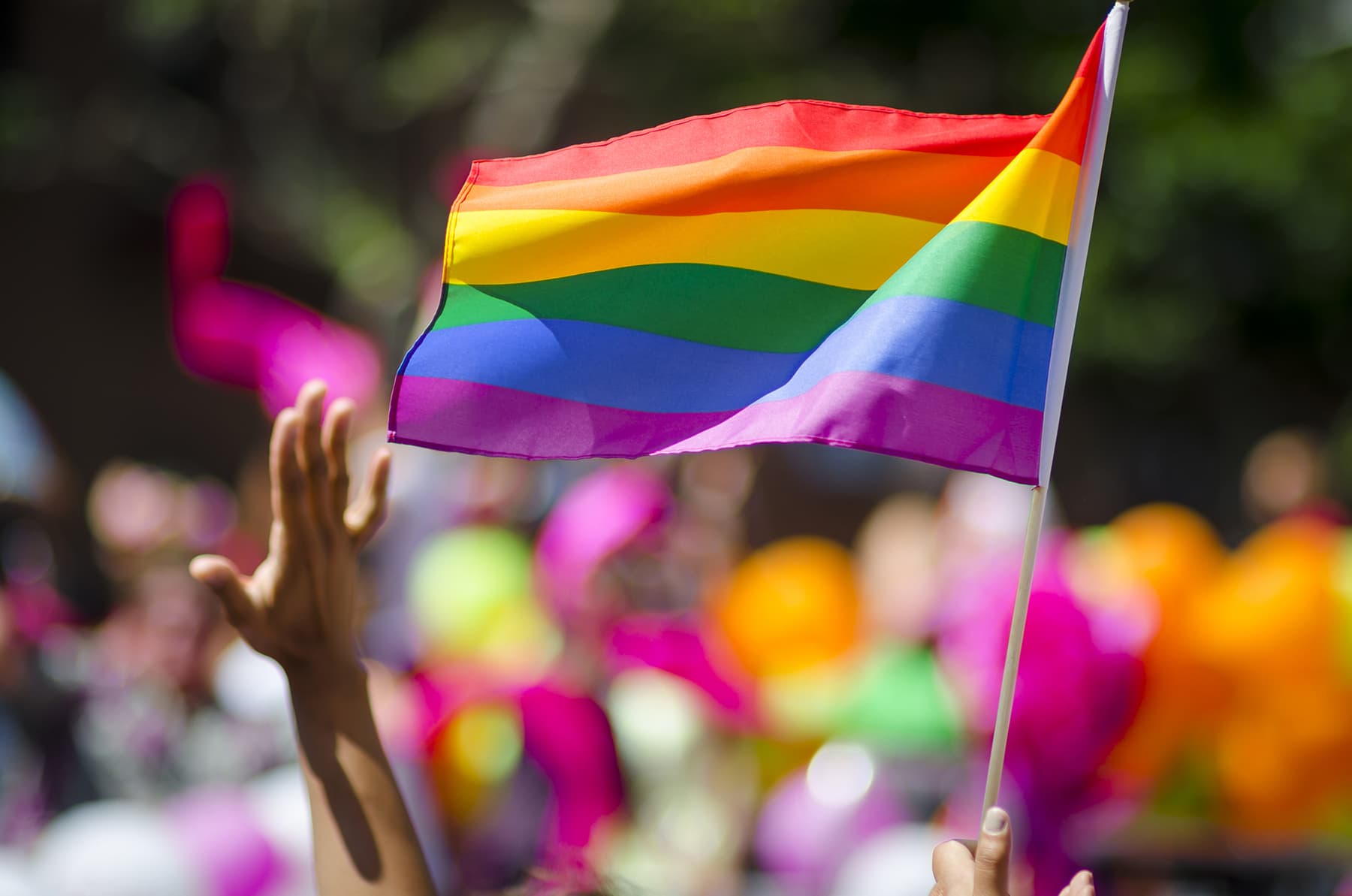Article
LGBTQ Travel Security Concerns
25 JUN 2021
/
5 min read
Author
Intelligence Analyst III, Embedded Intelligence Services

LGBTQ travelers will likely come across many online travel guides that offer advice for safe international travel. Modern travel guides will typically note the LGBTQ-friendly restaurants, clubs, bars, and neighborhoods. However, some guides may also note less-friendly places for LGBTQ travelers. In addition, guides will likely offer some standard safety advice, such as, "Be aware of your surroundings." Understanding the legal and social landscape of a given destination is crucial for LGBTQ travel safety. It enables LGBTQ individuals to mitigate the risk of hate crimes, systemic discrimination, and repercussions from the legal environment.
Threats to LGBTQ travelers vary by location, often requiring travelers to take a more flexible and nuanced approach to their security and planning. In some destinations, local laws could target members of the LGBTQ community for punishment. In others, the state mechanisms may not extend the protections offered to most citizens to members of the LGBTQ community. In the latter case, local police may not respond, for example, when an LGBTQ individual is in danger or is the victim of a crime. Another possible scenario is that the local government could officially support the LGBTQ community, while local social groups have strident anti-LGBTQ beliefs.
Understanding State-Sanctioned LGBTQ Discrimination
In over 70 countries, same-sex sexual acts are illegal. These laws usually focus on acts rather than sexual identity. Therefore, identifying as an LGBTQ individual is unlikely to result in an official sanction. Acts, such as engaging sexually with a member of the same sex, regardless of whether the partner is a local or a traveler, could lead to a traveler being arrested. In some locations, what constitutes a sexual act can vary; electronic communications may be included in some locations. In some countries, open support for LGBTQ rights constitutes a violation of the law. In some countries, authorities may deport foreigners for openly supporting the LGBTQ community.
Travelers in a location are bound by that country's laws and are not offered special protections even if the law does not exist in their own country. However, an embassy or consulate may help an imprisoned traveler connect with LGBTQ rights groups hoping that external pressure may assist the traveler's case. The US State Department's policy is to encourage all travelers to abide by local laws; if an LGBTQ citizen is arrested, the embassy or consulate will assist as it would for any other US citizen who breaks the local laws.
When traveling to a country where the LGBTQ community is officially marginalized or openly banned, travelers can take a few steps to protect themselves.
- Be cognizant of your surroundings. Before departing, travelers should educate themselves on the laws and enforcement in the country of destination, as well as the expected punishments for violations.
- Travelers should abide by local laws. The type of protection offered in some countries may not be found in others. Regardless of whether they seem right, violating local laws is not a legally defensible position, and foreign authorities may not be able to intervene on your behalf.
- Even in countries where same-sex sexual acts are heavily regulated, LGBTQ communities and social spaces exist. However, travelers should evaluate the threats inherent in visiting these venues. As a primary concern, engaging with a scrutinized community can bring a traveler to the attention of the authorities. Furthermore, the places where an LGBTQ community gathers could be in less reputable areas, and visiting these locations could be dangerous. Law enforcement monitors known meeting places of LGBTQ individuals in some places and may target and raid the location intermittently.
- Travelers should not be too trusting of new local contacts, despite how friendly they may appear. Criminals may target LGBTQ individuals for crimes or extortion.
- Travelers should plan for emergencies, particularly if the traveler's primary contact person is a same-sex partner. The State Department recognizes same-sex partnerships and will assist same-sex partners in reaching a traveler in the hospital or jail. But local authorities may not have the same respect for same-sex relationships, which could hamper the kind of access a same-sex partner gets.
Understanding Social Discrimination Against LGBTQ Individuals
In some locations, the public, not the authorities, is the most likely threat facing LGBTQ individuals, despite anti-gay laws in countries like Cameroon, Russia, and Uganda garnering media attention. Travelers in countries with broad anti-LGBTQ sentiment are at risk of being targeted by the local community and becoming victims of hate crimes.
In the most volatile combination, anti-LGBTQ social sentiment combines with anti-LGBTQ official government policy to create a perfect storm of state-sanctioned discrimination and hate crimes. But even in countries without anti-LGBTQ laws, some governments choose not to engage and protect the LGBTQ community, allowing an environment where hate crimes go unreported. As a result, the threat may increase or decrease based on the traveler's interaction with society and society's awareness of the traveler's sexuality.
When traveling to a country where the LGBTQ community is unofficially marginalized, travelers can use the following strategies to protect themselves from social discrimination.
- Travelers have to gauge situations on a case-by-case basis. There is no "one size fits all" when interacting with a homophobic society. Some travelers may decide that the best way to deal with the situation is to reveal nothing about their sexual orientation or gender identity. Others may find that option difficult, particularly if they stay in a foreign country for an extended period. Travelers should make their safety the primary concern when dealing with societies that harbor anti-LGBTQ sentiments.
- Travelers should research the cultural attitudes towards LGBTQ individuals at their destination to determine the potential risks of publicizing their sexuality.
- Embassies and consulates may offer some assistance in interacting with local governments on issues stemming from gender and sexuality.
- Local LGBTQ rights organizations may provide support, but engaging with them may also open travelers up to increased public exposure.
When we travel, we all make judgment calls from moment to moment. "No, I won't go to that neighborhood." "Yes, this bus should be fine." "I think I should contact the Embassy." "Everything is ok." And for cognizant, security-aware travelers, there some locations that can't be safely navigated.
For members of the LGBTQ community, some places–those with openly hostile government policies and those with deeply-rooted anti-LGBTQ sentiment–present a heightened threat environment than they do for non-LGBTQ travelers. However, that does not mean that travel must be curtailed. Instead, by taking steps to understand how anti-LGBTQ sentiment might manifest itself in a given destination, LGBTQ travelers will be able to make informed judgments about guiding their travel and protecting their safety.
Crisis24's LGBTQ Periodic Risk Intelligence and Security Monitor (PRISM) covers global attitudes, events, and issues that have the potential to affect the safety of LGBTQ persons. For more information about PRISM, please contact us.
Related
Tags
Sharpen your
view of risk
Subscribe to our newsletter to receive our analysts’ latest insights in your inbox every week.
Intelligence & Insights
Intelligence
Worth Gathering
Employing a team of 200+ analysts around the world, Crisis24 is the only source you need for on-point, actionable insights on any risk-related topic.

Intelligence Analysis
China’s New Digital Measures Likely to Affect International Businesses and Travelers
China is likely to implement additional digital measures that could further exacerbate operational unpredictability for international businesses and travelers.
February 24, 2026

Intelligence Analysis
Six Countries within WHO European Region Lose Measles Elimination Status
On Jan. 26, 2026, the WHO announced that Armenia, Austria, Azerbaijan, Spain, the UK, and Uzbekistan had lost their measles elimination status.
By Robyn Mazriel
February 23, 2026

Intelligence Analysis
Ground Transport and Flight Disruptions Persist in Parts of Mexico Amid Violence
Violence linked to CJNG operations continues to disrupt transport and travel across parts of Mexico. Learn how evolving security risks affect personnel and operations.
February 23, 2026

Intelligence Analysis
Terrorism Outlook 2026: Threats, Tactics, and Global Implications
In 2026, terrorism will be marked by consolidation of influence and operational capacity across vulnerable environments rather than global resurgence.
By Crisis24 Global Intelligence Team
February 19, 2026




